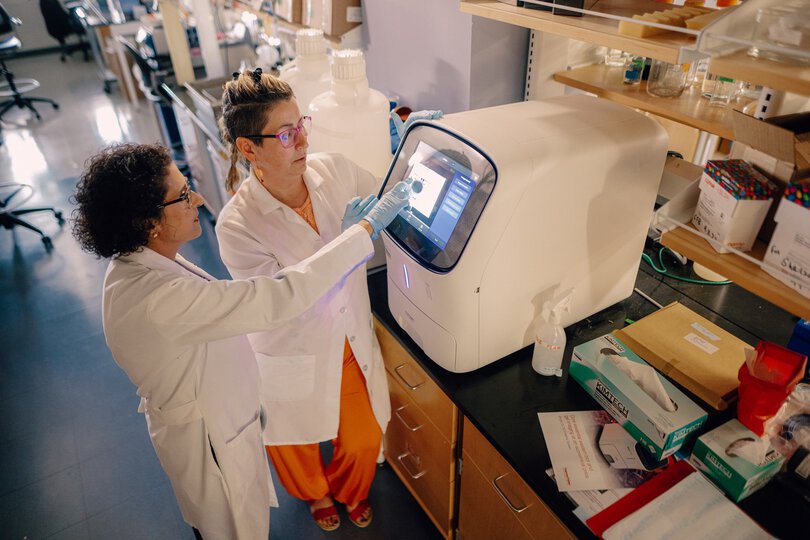Our NIH-funded research portfolio includes P30 Center grants in Rheumatology and Digestive Diseases, U01 grants in Gastroenterology and Rheumatology, and U10/U34 and U54 grants in gastroenterology and hematology/oncology. We conduct a wide range of clinical and translational research, with many investigators also collaborating with the VA in fields like cardiology, endocrinology, and hematology/oncology.
These programs are nationally and internationally recognized, advancing our understanding of disease mechanisms and leading to new treatment strategies. Our goal is to discover the biological causes of human disease and develop innovative therapies to improve patient outcomes.
Research Training & Mentorship
We are committed to training the next generation of researchers, with programs ranging from medical students to junior faculty. Our faculty mentoring program and NIH-supported training grants in rheumatology, cardiology, and other areas support the development of our researchers, fostering a vibrant "culture of research" at MUSC.
Basic Research
Basic science research is thriving across all divisions, with strong collaborative efforts in inflammation and fibrosis research. Our newly renovated lab space on the 9th floor of the Clinical Sciences Building supports these efforts, providing modern facilities for cutting-edge research in areas like lung, liver, and renal fibrosis.
Translational Research
Translational research at MUSC bridges basic science, clinical research, and patient care through a team-based approach. Our strategic focus includes discovering disease pathways, identifying therapeutic targets, and translating these findings into clinical practice. The Center of Economic Excellence in Inflammation and Fibrosis exemplifies this approach, with teams working together on diseases like systemic sclerosis, liver fibrosis, and pulmonary fibrosis.
Our translational efforts also extend to implementing research discoveries in clinical and community settings. Notable examples include Dr. Marvella Ford's health disparities outreach through the SC Cancer Disparities Research Center and the work of Drs. Diane Kamen and Edith Williams on improving health in rheumatic diseases.
Clinical Research
Our clinical research portfolio is wide-ranging, covering prospective and retrospective studies, health data modeling, clinical trials, and biomarker research. Pulmonary, Gastroenterology, and Hematology/Oncology divisions are particularly active, with support from the South Carolina Translational Research Institute and the Office of Clinical Research.
Research by Division



